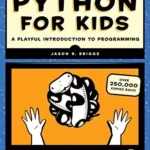
Brands and bots are barred from Spread, and, like PI.FYI, the platform doesn’t support ads. Instead of working to maximize time-on-site, Rogers’ primary metrics for success will be indicators of “meaningful” human engagement, like when someone clicks on another user’s recommendation and later takes action like signing up for a newsletter or subscription. He hopes this will align companies whose content is shared on Spread with the platform’s users. “I think there’s a nostalgia for what the original social meant to achieve,” Rogers says.
So you joined a social network without ranking algorithms—is everything good now? Jonathan Stray, a senior scientist at the UC Berkeley Center for Human-Compatible AI, has doubts. “There is now a bunch of research showing that chronological is not necessarily better,” he says, adding that simpler feeds can promote recency bias and enable spam.
Stray doesn’t think social harm is an inevitable outcome of complex algorithmic curation. But he agrees with Rogers that the tech industry’s practice of trying to maximize engagement doesn’t necessarily select for socially desirable results.
Stray suspects the solution to the problem of social media algorithms may in fact be … more algorithms. “The fundamental problem is you’ve got way too much information for anybody to consume, so you have to reduce it somehow,” he says.
In January, Stray launched the Prosocial Ranking Challenge, a competition with a $60,000 prize fund aiming to spur development of feed-ranking algorithms that prioritize socially desirable outcomes, based on measures of users’ well-being and how informative a feed is. From June through October, five winning algorithms will be tested on Facebook, X, and Reddit using a browser extension.
Until a viable replacement takes off, escaping engagement-seeking algorithms will generally mean going chronological. There’s evidence people are seeking that out beyond niche platforms like PI.FYI and Spread.
Group messaging, for example, is commonly used to supplement artificially curated social media feeds. Private chats—threaded by the logic of the clock—can provide a more intimate, less chaotic space to share and discuss gleanings from the algorithmic realm: the trading of jokes, memes, links to videos and articles, and screenshots of social posts.
Disdain for the algorithm could help explain the growing popularity of WhatsApp within the US, which has long been ubiquitous elsewhere. Meta’s messaging app saw a 9 percent increase in daily users in the US last year, according to data from Apptopia reported by The Wrap. Even inside today’s dominant social apps, activity is shifting from public feeds and toward direct messaging, according to Business Insider, where chronology rules.
Group chats might be ad-free and relatively controlled social environments, but they come with their own biases. “If you look at sociology, we’ve seen a lot of research that shows that people naturally seek out things that don’t cause cognitive dissonance,” says Stoldt of Drake University.
While providing a more organic means of compilation, group messaging can still produce echo chambers and other pitfalls associated with complex algorithms. And when the content in your group chat comes from each member’s respective highly personalized algorithmic feed, things can get even more complicated. Despite the flight to algorithm-free spaces, the fight for a perfect information feed is far from over.










